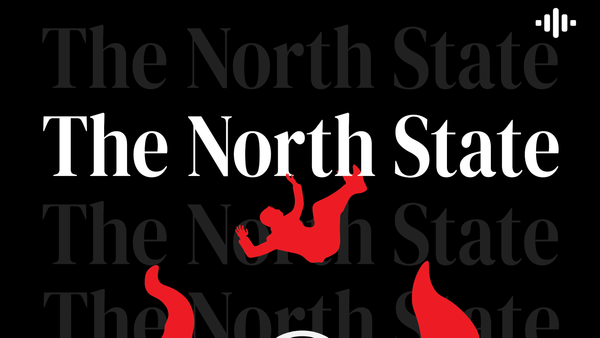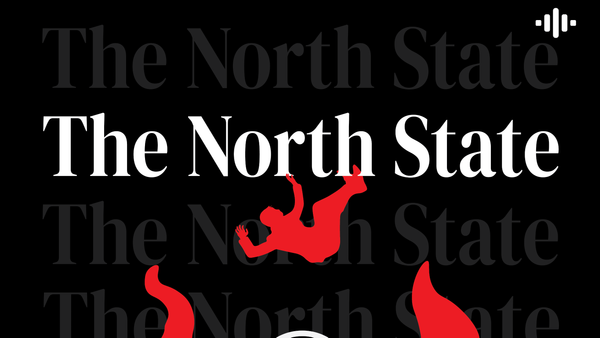The Cycle of Sycophants
Glowing coverage, inflated ego, desperation for praise, repeat

We all know the meme. James Woods is a clerk at the Kwik-E-Mart cowering as an armed robber raises a gun, but Apu has jumped in to defend him. Woods is labelled “Elon Musk”, the armed robber “legitimate criticism” and Apu “weird nerds.” It’s gained such a reputation for mocking Muskites that his subreddit specifically asked how to counter it.
The meme and the Musk fandom’s frustration with it reflects a well-known phenomenon on the internet. Tim Pool says he loves his Tesla, but it randomly slams the breaks on the highway. Canadian fans spend $600,000 to build a statue of Musk as a goat riding a rocket and plan bring it to his door, while his newest venture has lost half of its top 100 advertisers.
Elon Musk slams his dick in a car door, his fans say it’s a masterful gambit.
This article won’t just be about the groveling masses who flood Musk’s mentions everytime he tweets a 🤣 emoji. That would be like nuking fish in a mason jar. But rather the cycle that enforces this dynamic.
First, as always, our blame should lay with the media that fell for, and propagated, Musk’s modern perception. In a 2011 Wall Street Journal interview, Musk said he would put a man on Mars in 10 years. Vanity Fair’s glowing 2017 profile of Musk and his warnings of AI happily reported “It’s hard for mere mortal women to maintain a relationship with someone as insanely obsessed with work as Musk.” The Guardian’s profile in 2018 titled “Elon Musk: the real-life Iron Man” slobbers over every inch of his body, writing “Musk’s enthusiastic embrace of technology for technology’s sake and his desire to push the limits of what was possible for private enterprise made him a close real-world analogue for Marvel’s billionaire arms dealer.” In The Simpson’s 22 minute groveling session disguised as an episode, Lisa quips “Elon Musk is possibly the greatest living inventor.” TIME made Musk their 2021 man of the year.
The same media that is now realizing the extent of Musk’s buffoonery are coughing awkwardly as they publish more critical pieces. At best, they’re sheepishly hoping you forgot about all their billionaire praise and at worst they’re acting bewildered that their golden boys would behave like this.
In the former category, The Guardian published an editorial warning about Musk’s ego and letters about how he is a bad boss. Vanity Fair also said that Twitter Blue’s reversal surprises no one, because who would be surprised that he’s a grifter? Certainly not us, why would you think we had faith in him?
The Wall Street Journal fits in the latter category, now publishing articles on his incredibly bad business tactics. The WSJ meekly says of Musk and other tech billionaires, “[T]hese unforced errors have seriously undermined the image of extreme competence that these companies and their leaders fostered during their ascent.”
Interesting choice of words to use instead of “The man has no idea what the fuck he’s doing, never has, and it’s our fault for making you believe otherwise.”

The capitalist media’s obsession with “the brilliant billionaire” isn’t a subject for this article, as it extends far beyond Musk. However, it’s important to note that, while it’s true that positive coverage of Musk has slowly been eroded by scandal after scandal and multiple Tesla fires, this is not a point in the media’s favour. After all, Trump’s free advertising in news coverage that helped propel him to the presidency was not counteracted by the news’ following coverage of his scandals. Indeed, a lot of this pre-Twitter critical coverage of Tesla and Musk’s behaviour was happening in the same time period of the glowing reviews. Until Musk’s flagrantly awful moves after his acquisition of Twitter, the media coverage was largely one that can be summed up by the sentence “Elon Musk is a land of contrasts.” So while there is a slight begrudging appreciation of a turn towards a more critical eye of Musk in recent weeks, it’s clear that it’s too little, too late.
That’s because, in the years preceding (and especially the weeks since) Musk’s Twitter acquisition, the displays of worship by his legions have reached Scientology levels. Parasites take to the site to tweet things like “Please Mr. Musk sir, make your own phone” to which he replies of course, because it’s just easy, I guess. Andy Ngo, who’s “reporting” has informed kill lists for Atomwaffen, asks Musk to ban anarchist account Crimethinc, which mysteriously happened shortly afterward. Musk replies to white nationalist ramzpaul begging users to please send him child exploitation, after the fascist equated pedophilia with antifa accounts.
These interactions are just the more radical version of a long list of exchanges that display Musk’s near-criminal drive to be liked. This motivation for Musk has been clear for those paying attention, but the point of no return came earlier this year when he interrupted a meeting to talk about stealing a meme from the Hard Drive after they ruthlessly dunked on him. “Your meme game is strong” someone says, when he brings it up after checking his phone.
If I am ever put in a position where I say that sentence to my boss in a professional meeting, I would finally leap towards the abyss I’ve been gazing into for the past 15 years.
What we have here is the perfect illustration of the cycle of sycophants: A megalomaniac is elevated to prominence by the media and gains a legion of fans as a result. Then, after years of building and entrenched admiration for this figure, their true personality reaches the point where it can no longer be denied, which causes the media levers of power to slowly recede their positive coverage. By this point their audience is large enough to provide the figure’s sole resource of unflinching, positive public praise. In contrast to the growing number of people laughing and mocking them, the only way for the figure to continue positive interactions is to cater to their base, which now consists only of people too ignorant to hear contradicting viewpoints, or those in agreement with the figure’s terrible policies. In this rapidly escalating process, both the figure and their base’s egos are protected and radicalized by each other.
This dynamic isn’t new as Musk absolutely profited from racism in his business practices before acquiring Twitter, starting off his wealth from emerald mines his father owned in apartheid South Africa. But the question of whether you believe this made him a fascist before explicitly catering to them is up to you. As of right now he has no qualms about making this relationship clear. Musk craves approval, and he’s no longer getting it from the media that spent years fulfilling that need.
It should tell us a lot that the richest man in the world who lost $100 billion cares more about his army of lampreys than he ever would about his personal financial loss. It’s almost pathetic, but he has more money than most people would see for 30 lifetimes, so instead, it’s very dangerous.





